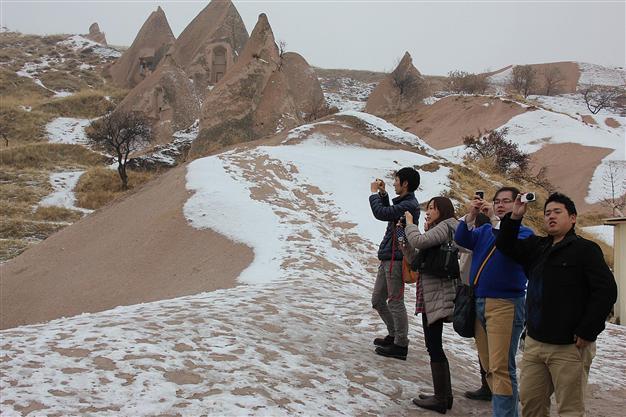Turkish tourism sector plans to lure Japanese tourists in bid to diversify markets
Burak Coşan ISTANBUL

DAILY NEWS Photo
Turkish tourism players have their eyes set on Japanese tourists, as they look to diversify incoming tourist sources over looming retreats in Russia and European markets, a top representative of the sector has said.
Başaran Ulusoy, the head of the Association of Turkish Travel Agencies (TÜRSAB), said the local tourism sector, which hosted 35 million tourists last year, has begun to seek ways to attract tourists from Japan, which sends around 22 million tourists abroad every year.
Ulusoy said his institution has already contacted the Japan Association of Travel Agents to discuss ways to boost the number of Japanese tourists visiting Turkey.
He said the sector initially aims to increase the number of tourists coming from Japan to 400,000 from its current level of 170,000.
“We are trying to plant confidence in the Japanese market,” he said.
The TÜRSAB head also noted they hope to raise the number of destinations preferred by Japanese tourists by promoting other touristic spots around the country, particularly in southeastern Turkey.
“Japanese tourists favor Istanbul, Cappadocia and Denizli. We want to add new destinations. Mardin, Şanlıurfa and Gaziantep will be target markets. We believe these places will attract the attention of Japanese people with their culture and history,” he said. “We will lure Japanese tourists with Gaziantep cuisine.”
Ulusoy said Turkish tourism players are looking to persuade Japanese tourists to visit Turkey multiple times, as well as to win other Far Eastern tourists later on.
“Japanese tourists come to Istanbul once and they don’t come again. We want to ensure they will come again. We want sustainable customers,” he said.
“After a demand increase from Japan, Turkey will enter into the radar of Singapore, Thailand and Malaysia. There is a huge market here,” he said.
